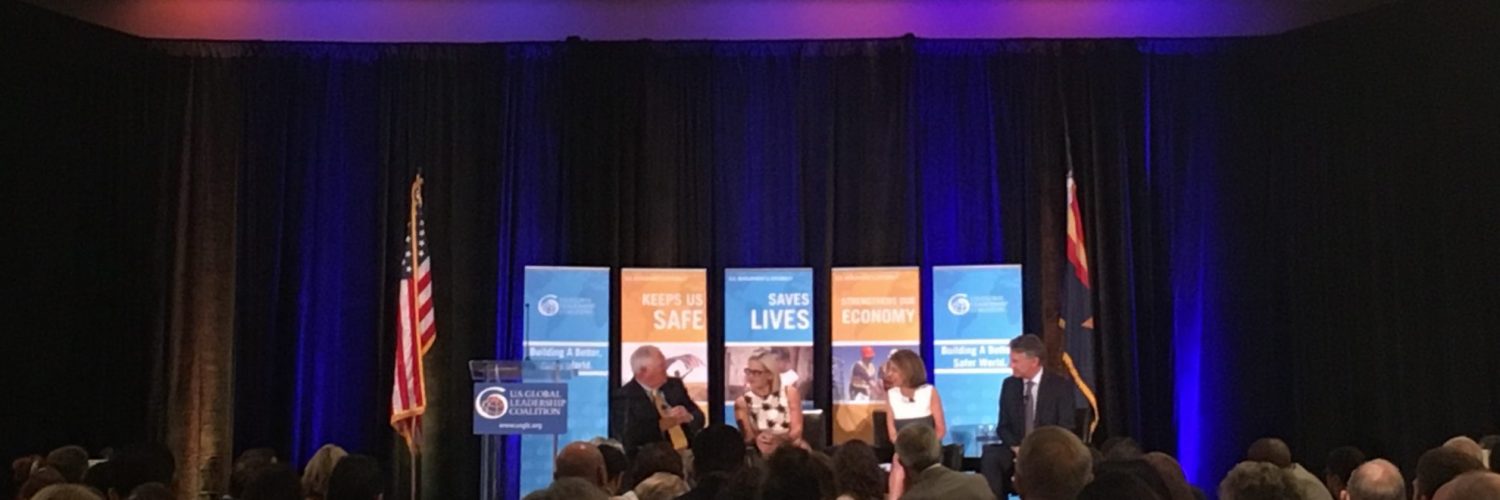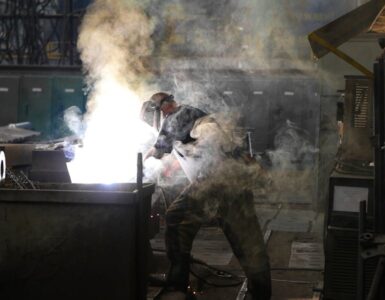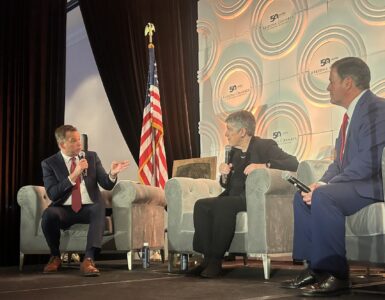The U.S. Global Leadership Coalition welcomed Senator Kyrsten Sinema and other leaders to discuss the importance of U.S. leadership, development and diplomacy.
At the event, America’s Role in the World: Why Leading Globally Matters for Arizona, attendees learned the ways in which the nation’s global leadership impacts Arizona.
While maintaining and continuously improving trade relationships is a priority of many, Arizona Senator Kyrsten Sinema assured attendees that there is no responsibility she takes more seriously, “than keeping Arizonans and all Americans safe and secure.”
“I feel like it’s my duty to each and every one of those brave service members and to all Arizonans to ensure that we have every tool available to strengthen America’s security and that we bring that to bear to protect American values both at home and abroad, which means we must support a strong military with the resources necessary to protect our freedoms,” Sen. Sinema said.
She said, “It also means America must remain a global leader in diplomacy and development because international engagement is national security.”
Sinema explained that diplomacy and development programs have allowed the U.S. to solve national issues and challenges without the need to deploy military personnel.
At the event, USGLC president and CEO Liz Schrayer moderated a panel with Sen. Sinema, General James T. Hill and Ambassador Karl Hofmann.
Gen. Hill served in the U.S. Army for 36 years before retiring and was the Combatant Commander of the U.S. Southern Command. For that assignment, he commanded all U.S. military forces in Central and South America and the Caribbean.
Ambassador Hofmann is the president and CEO of the nonprofit global health organization Population Services International. He also served as the U.S. Ambassador to the Republic of Togo during his time as an American diplomat.
When asked if Arizona and the rest of the nation are investing enough overseas and remaining competitive, Sen. Sinema said the U.S. makes decisions based on the long-term benefit.
She said China has made large investments in developing nations, “but their investment is constructive investment. It is not a long-term investment that helps the people of the country- it’s extracting.”
Sen. Sinema explained that some nations that invest in developing countries will bring their own staff and materials rather than create opportunities for the people of the developing area.
But, the U.S. understands the importance of helping the country in which it is investing to grow and strengthen so it is a mutual benefit.
The panelists also discussed the importance of global health systems and security outside of the U.S. and how promoting the nation’s values improves safety.
“This is about the security ultimately of us… The world is getting smaller by day, right? The connectedness between all of us is pretty striking and the Ebola outbreak in the [Democratic Republic of the Congo] right now is very frightening.”
He explained that the Ebola outbreak is not only frightening for the harm it’s causing the people of the DRC, but because of the violence that ensues when people come to help.
If organizations can address the issue quickly and effectively, it will save outbreaks from spreading and harming more people.
Gen. Hill explained the collaboration between the U.S. and Colombia is an example of a successful time the nation promoted its values to improve safety.
“It is Congress ensuring that money is used correctly by the U.S. Military, by the State Department, by the Justice Department in working with Colombia. It is also the synergy that happens between the Colombian government and the U.S. government and working together.”
















Add comment